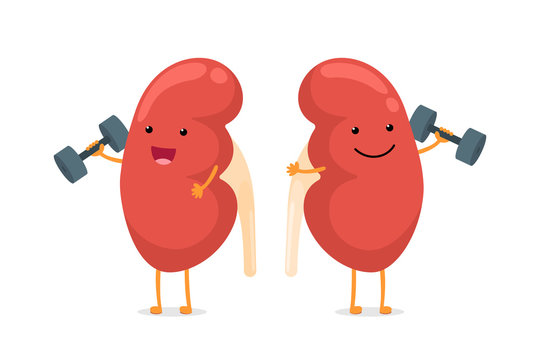The health of our kidneys is a cornerstone of overall well-being, yet it is often overshadowed
in the broader discussion of health management. Kidneys play a crucial role in filtering
waste, balancing electrolytes, and regulating blood pressure. In the realm of urology, understanding and managing renal conditions is pivotal. This article delves into the intricacies of renal health, exploring the causes, symptoms, and management strategies of kidney-related disorders.

The Role of Kidneys in Our Body
Kidneys are remarkable organs that perform vital functions. They remove waste products
and excess fluid from the body, regulate electrolyte balance, produce hormones that control
blood pressure and red blood cell production, and maintain bone health. Any compromise in
their function can lead to significant health issues.
Common Renal Conditions in Urology
There are several renal conditions commonly encountered in urology, including:
- Chronic Kidney Disease (CKD): A long-term condition where the kidneys don’t
work as well as they should. It’s a common condition often associated with ageing. - Kidney Stones: Hard deposits of minerals and salts that form inside the kidneys,
often causing severe pain. - Urinary Tract Infections (UTIs): These infections can affect the kidneys, bladder,
and the tubes that run between them. - Glomerulonephritis: A group of diseases that injure the part of the kidney that filters
blood.
Symptoms of Renal Conditions
The symptoms of kidney diseases can be subtle and easily overlooked. They include:
● Swelling in the legs, ankles, feet, face, or hands
● Fatigue and weakness
● Shortness of breath
● Urination changes (frequency, appearance, pain)
● Blood in urine
Risk Factors and Prevention
Certain factors increase the risk of developing kidney diseases:
● Diabetes
● High blood pressure
● Family history of kidney disease
● Age over 60
● Obesity
● Smoking
Preventive measures include maintaining a healthy diet, regular exercise, avoiding tobacco,
and controlling blood pressure and sugar levels.
Diagnosis and Treatment
Diagnosis of kidney disease typically involves blood tests, urine tests, imaging tests, and, in
some cases, a kidney biopsy. Treatment depends on the specific condition.
For CKD, managing underlying conditions like diabetes and hypertension is crucial. In cases
of kidney stones, treatment might involve pain relief, drinking lots of water, and possibly
medical procedures. UTIs usually require antibiotics.
The Role of a Urologist in Kidney Health
Urologists are specialists in treating diseases of the urinary tract and the male reproductive
system. They play a critical role in diagnosing and managing renal conditions. A urologist
London, or any other city, will typically work closely with nephrologists, dietitians, and other
healthcare professionals to provide comprehensive care to patients with kidney issues.
Advances in Renal Health Management
Recent years have seen significant advancements in the management of renal conditions.
Minimally invasive surgical techniques have improved the treatment of kidney stones and
cancers. There’s also growing emphasis on early detection and management of CKD to
prevent progression to end-stage renal disease.
Living with a Renal Condition
Living with a kidney condition involves regular monitoring and lifestyle adjustments. This
includes dietary changes, regular exercise, medication adherence, and avoiding substances
harmful to the kidneys. Patient education and support groups are invaluable resources.
Conclusion
Kidneys play a vital role in our overall health, and their well-being is integral to our body’s
balance. Awareness, early detection, and effective management of renal conditions are key
components in maintaining kidney health.
With advancements in medical science and a holistic approach to healthcare, managing
renal conditions in urology has become more efficient, offering patients a better quality of
life.
Remember, prevention is better than cure; regular check-ups and a healthy lifestyle are your
best defence against kidney diseases.







I realize that the liver is affected by alcohol but am surprised that alcohol doesnt affect the kidneys.